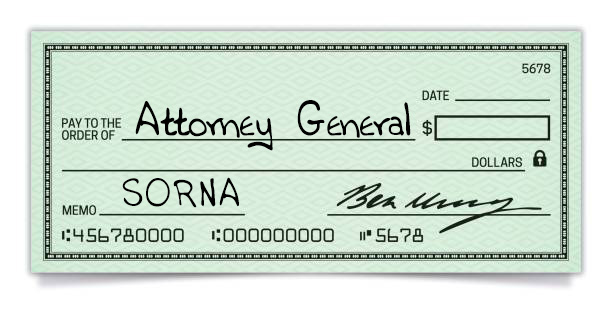We post news and comment on federal criminal justice issues, focused primarily on trial and post-conviction matters, legislative initiatives, and sentencing issues.

CHANGE IN THE WIND?
 The Supreme Court narrowly upheld a law last June that, in the dissenting words of Justice Neil Gorsuch, “hand[ed] off to the nation’s chief prosecutor the power to write his own criminal code.” Last week, Justice Brett Kavanaugh spoke up in support of Gorsuch.
The Supreme Court narrowly upheld a law last June that, in the dissenting words of Justice Neil Gorsuch, “hand[ed] off to the nation’s chief prosecutor the power to write his own criminal code.” Last week, Justice Brett Kavanaugh spoke up in support of Gorsuch.
The June ruling in Gundy v. United States, a case that centered on the Sex Offender Registration and Notification Act, required convicted sex offenders to register, check in periodically in person, and share personal information with the authorities. SORNA gives the Attorney General “the authority to specify the applicability of the requirements of this subchapter to sex offenders convicted before the enactment of this chapter.” In other words, Congress gave the AG a blank check when it came to dealing with the estimated 500,000 individuals whose convictions predate SORNA’s passage.
And that’s the issue, one that reaches far beyond SORNA: the delegation of legislative authority to a government agency. Gorsuch thought SORNA combined the lawmaking powers of Congress with the law enforcement powers of the executive, and then gave those combined powers to a single federal official. For the Supreme Court to let that outcome stand, Gorsuch argued, marks “the end of any meaningful enforcement of our separation of powers.”
 Kavanaugh took no part in Gundy, leaving some court watchers to wonder abOut how he might have ruled. He answered that question last week in a statement on denial of certiorari in Paul v. United States, another separation of powers case. Kavanaugh praised “Justice Gorsuch’s scholarly analysis of the Constitution’s nondelegation doctrine” in Gundy, noting that this “thoughtful” dissent “raised important points that may warrant further consideration in future cases.”
Kavanaugh took no part in Gundy, leaving some court watchers to wonder abOut how he might have ruled. He answered that question last week in a statement on denial of certiorari in Paul v. United States, another separation of powers case. Kavanaugh praised “Justice Gorsuch’s scholarly analysis of the Constitution’s nondelegation doctrine” in Gundy, noting that this “thoughtful” dissent “raised important points that may warrant further consideration in future cases.”
The future case has yet to arrive at the Supreme Court, but Kavanaugh’s statement nevertheless is good news for people suffering when the Bureau of Prisons interprets good time statutes, RDAP statutes and the First Step Act to achieve tortured results that are now accepted without question by courts.
Reason, Kavanaugh Joins Gorsuch in Fight To Revive Nondelegation Doctrine (Nov. 25)
Paul v. United States (Kavanaugh, J., concurring), 2019 U.S. App. LEXIS 35706 (Supreme Ct., Nov. 25, 2019)
– Thomas L. Root

